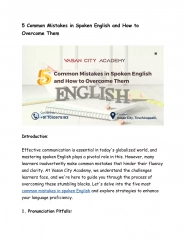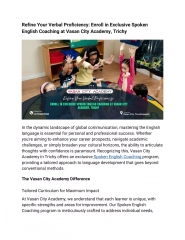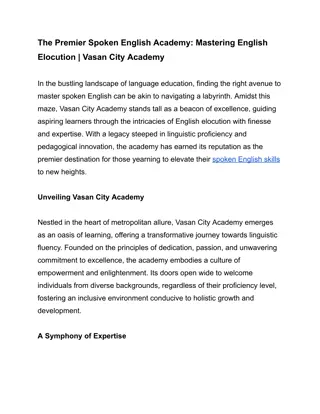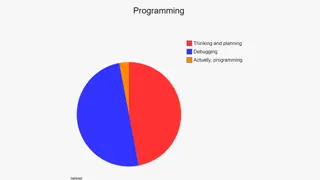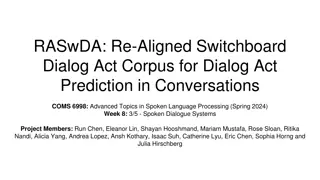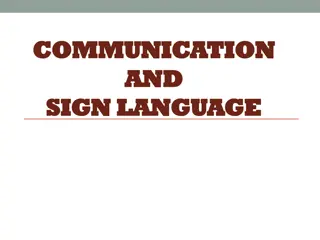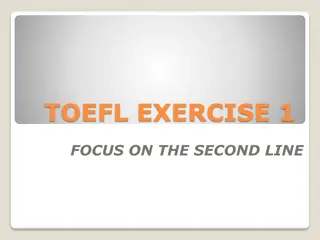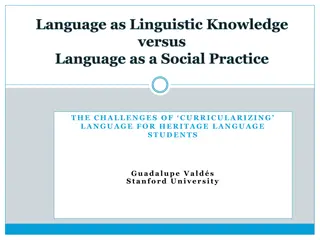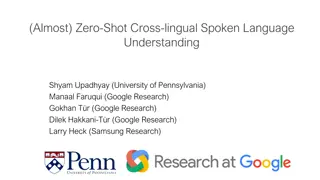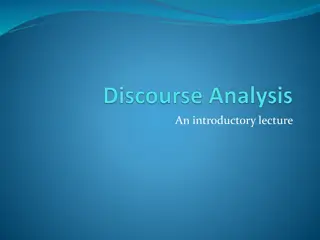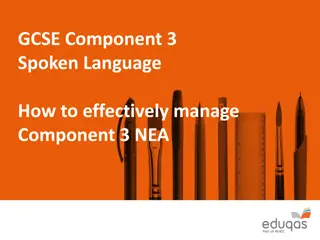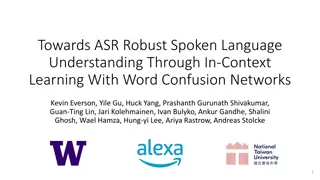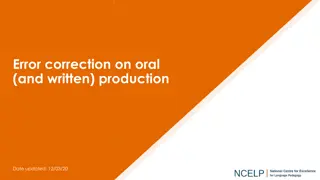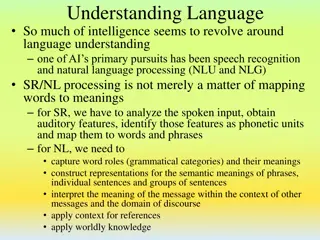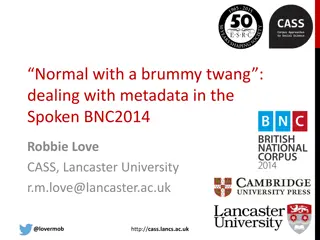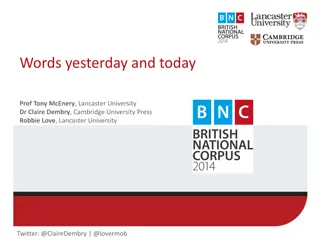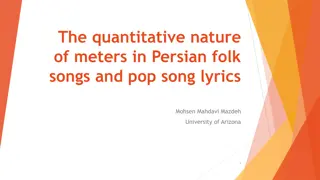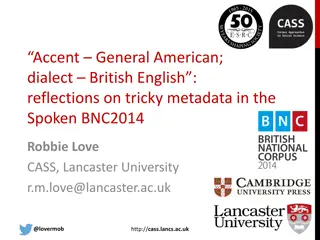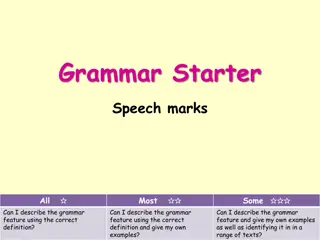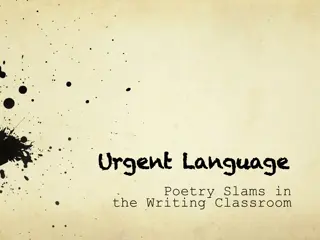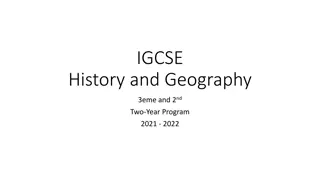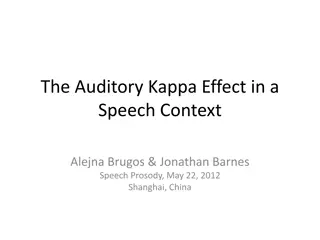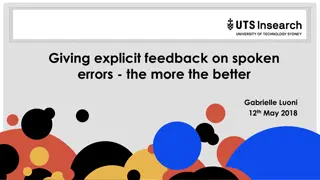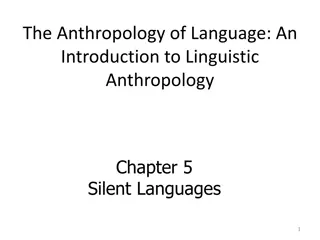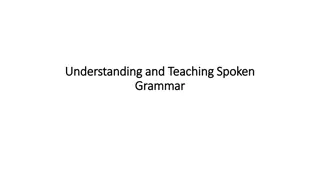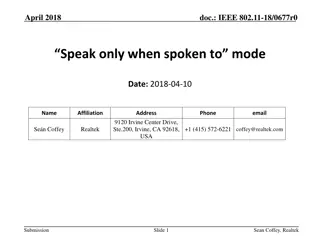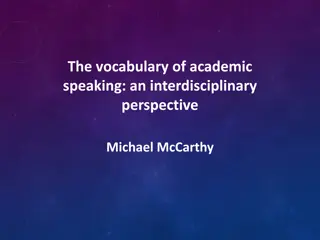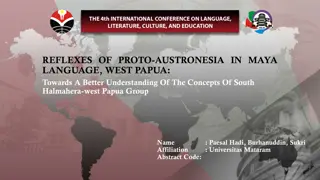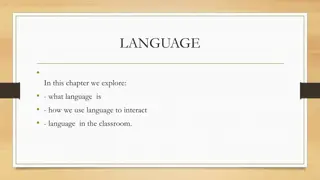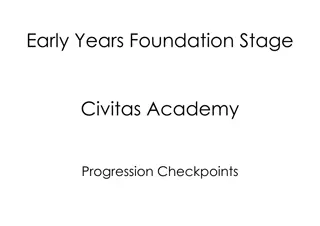5_Common_Mistakes_in_Spoken_English_and_How_to_Overcome_Them__1_ (1)
\nVasan City Academy stands as the premier institution for those seeking the pinnacle of spoken English proficiency in Trichy. Our meticulously designed Spoken English Classes offer a refined and structured curriculum, guided by seasoned instructors committed to honing your communication skills.
0 views • 4 slides
Spoken English Coaching in Trichy
Vasan City Academy stands as the preeminent institute for Spoken English Coaching in Trichy, offering a refined and formal approach to language proficiency. Our esteemed faculty is dedicated to cultivating your verbal communication skills with precision and finesse.
0 views • 6 slides
The Premier Spoken English Academy Mastering English Elocution
\nVasan City Academy is recognized for delivering exceptional Spoken English Classes in Trichy. Our distinguished instructors offer meticulously crafted curricula tailored to individual proficiency levels, ensuring swift advancement. Focused on practical conversational skills, grammatical precision,
1 views • 4 slides
Understanding Translation: Key Concepts and Definitions
Translation involves transferring written text from one language to another, while interpreting deals with oral communication. Etymologically, the term "translation" comes from Latin meaning "to carry over." It is a process of replacing an original text with another in a different language. Translat
12 views • 76 slides
Understanding Language and Linguistics
Language is a fundamental aspect of human communication, encompassing spoken and signed forms. Linguistics delves into syntax, semantics, morphology, phonology, and phonetics to analyze language structure and meaning. Phonetics explores how speech sounds are produced and perceived, shedding light on
9 views • 10 slides
Understanding the Importance of Language Development for Human Flourishing
Language is essential for human species, influencing health, productivity, and social well-being. Recognizing the significance of spoken and written communication is crucial for personal growth and societal advancement. Early childhood experiences play a vital role in language development, emphasizi
6 views • 35 slides
Understanding Language Syntax Through Syntax Trees
Explore how both programming languages and spoken languages can be parsed into syntax trees, revealing the syntactic structure of sentences. Learn about terminals and non-terminals in syntax trees and how they represent different components of language. Dive into syntax tree abstraction for a deeper
3 views • 32 slides
Understanding Dialog Acts in Spoken Language Processing
Dialog acts encompass the communicative function and semantic content in conversations, influencing cognitive states and context. They have multiple realizations and interpretations, impacting dialog systems' language generation and recognition processes. Dialog acts play a crucial role in spoken di
0 views • 16 slides
Guide to Billing for Spoken Language Reimbursement in Healthcare
The guide outlines the reimbursement process for spoken language services in healthcare, including eligibility criteria, provider responsibilities, and reimbursement training objectives. It highlights the importance of language access in healthcare settings and provides instructions on how to reques
0 views • 11 slides
Understanding Communication and Sign Language
Communication is the vital process of exchanging information, ideas, and emotions through various channels such as speech, signals, and writing. This includes verbal and non-verbal communication, where sign language plays a crucial role. Effective communication depends on the sender, message, channe
1 views • 31 slides
TOEFL Exercise 1 Listening Practice
This TOEFL exercise focuses on listening comprehension, where you need to understand the meaning behind spoken dialogues, not just the literal translation. The exercise includes short conversations with questions about the intended meaning, testing your ability to comprehend and interpret spoken Eng
0 views • 12 slides
Evolution of Spoken Word Poetry Through Time
Explore the rich history of spoken word poetry, from ancient oral traditions to modern slam poetry movements. Delve into the characteristics, influences, and notable poets like Lawrence Ferlinghetti and Allen Ginsberg. Witness the evolution of this dynamic art form that celebrates community, culture
0 views • 17 slides
Challenges of Curricularizing Language for Heritage Language Students
The field of Heritage Language Education has shown growth and importance in recent years, with a focus on teaching minority languages for various purposes. Researchers are studying heritage languages spoken around the world. Despite progress, there is a tension between common goals in HL education a
0 views • 47 slides
Advancements in Cross-lingual Spoken Language Understanding
Significant advancements have been made in cross-lingual spoken language understanding (SLU) to overcome barriers related to labeled data availability in different languages. The development of a SLU model for a new language with minimal supervision and achieving reasonable performance has been a ke
0 views • 20 slides
Understanding Discourse Analysis: An Overview
Discourse analysis is the study of language in use within its social context. It involves analyzing written or spoken language to understand how it is employed in real-life situations. This research method focuses on the purposes and effects of language, cultural conventions, communication of values
3 views • 22 slides
Guidelines for GCSE Component 3 Spoken Language NEA
Key requirements for GCSE Component 3 Spoken Language NEA involve delivering an individual formal presentation on a self-selected topic. Successful presentations focus on engaging topics chosen by candidates, involve prior discussion with teachers, include advanced preparation, and meet audience nee
0 views • 21 slides
Enhancing Spoken Language Understanding with Word Confusion Networks
Explore the integration of word confusion networks into large language models to improve spoken language understanding by addressing ASR errors and transcription ambiguities. The research focuses on leveraging ASR lattices for richer input representations and investigating the performance variations
0 views • 30 slides
Exploring Spoken Grammar: Insights from MATEFL Webinar
Delve into the nuances of spoken grammar in real conversations through the lens of a MATEFL webinar. Analyze dialogues, examples, and considerations to enhance your understanding and teaching of spoken language. Discover the benefits and engage in activities to improve situational ellipsis skills.
0 views • 50 slides
Enhancing Language Learning Through Error Correction Strategies
Explore the importance of error correction in language learning based on recommendations from The Pedagogy Review. Discuss strategies to anticipate, correct, and provide feedback on errors in both spoken and written language to facilitate effective language acquisition and communication. Consider th
1 views • 66 slides
Unraveling the Complexity of Language Understanding in AI
Much of intelligence is intertwined with language understanding, making it a focal point in AI. Speech recognition and natural language processing involve analysing spoken input, mapping phonetic units to words, capturing word roles, constructing semantic representations, and interpreting messages i
0 views • 59 slides
Dealing with Metadata in the Spoken BNC2014: An Insightful Study
Delving into the metadata of the Spoken BNC2014, this study by Robbie Love at Lancaster University focuses on regional categorization, socio-economic status, and advancements towards dual compatibility with the BNC1994. With over 800 hours of recordings and nearly 700 unique speakers contributing to
0 views • 39 slides
Words Yesterday and Today Research Project by Prof. Tony McEnery and Dr. Claire Dembry
Explore the Words Yesterday and Today research project led by Prof. Tony McEnery from Lancaster University and Dr. Claire Dembry from Cambridge University Press. This project delves into language usage trends, linguistic analysis, and social media discourse. Join the conversation on Twitter with @Cl
0 views • 14 slides
Exploring Quantitative Meters in Persian Folk Songs and Poetry
Delve into the quantitative nature of meters in Persian folk songs and pop song lyrics as discussed by Mohsen Mahdavi Mazdeh at the University of Arizona. The study explores how syllable weight, vowel length, and metrical patterns play vital roles in classical Persian poetry and the poetry of spoken
0 views • 19 slides
Insights into Xhosa Language and Culture
Xhosa, the second most spoken language in South Africa, is part of the Nguni sub-family of the Bantu languages. It has a rich history, with various dialects and a unique structure based on noun classes and concords. The language has undergone significant transformations, such as being written in a R
0 views • 17 slides
Exploring Sociolinguistics: Language Variation and Social Factors
Sociolinguistics delves into the study of language variation influenced by social factors, examining the relationship between language and its social context. It explores various aspects like standard pronunciation, language choice, speech acts, language components, language variety, and factors suc
0 views • 73 slides
Insights into Tricky Metadata in Spoken BNC2014
Reflections on the challenges of metadata in the Spoken BNC2014 corpus compiled by Lancaster University and Cambridge University Press. The project involves collecting and transcribing recordings from a diverse set of speakers, documenting key demographic information, accent/dialect variations, and
0 views • 40 slides
Understanding Assembly Language Programming for Computing Layers
Assembly language is a low-level programming language that enables direct interaction with a computer's hardware components. This content explores the fundamentals of assembly language, the relationship between human-readable machine language and binary code, an assembly language program for multipl
0 views • 31 slides
Understanding Speech Marks in Grammar
Speech marks are punctuation marks used to frame words spoken by someone. They enclose the actual spoken words and any additional punctuation associated with the speech. By providing examples and analyzing texts, this content explores the correct usage of speech marks and their importance in maintai
0 views • 5 slides
Exploring Poetry Slams: A Journey into Oral Tradition
Delve into the world of poetry slams, a vibrant space where spoken-word poets express emotions, share insights, and celebrate the oral tradition of poetic performance. Discover different poetic styles like the Personal Poem, Visionary Poem, Formalist Poem, and Spoken-Word Poem, each offering a uniqu
0 views • 27 slides
IGCSE Two-Year Program Overview for History and Geography 2021 - 2022
In the IGCSE History and Geography 3eme and 2nd Two-Year Program for 2021 - 2022, students prepare for exams over two years, with classes focused on Language and Literature subjects. The program aims to develop skills in reading, writing, critical thinking, and spoken language use. Exams include the
0 views • 10 slides
Understanding Language Anxiety in Foreign Language Learning and Teaching
Explore the impact of language anxiety on students and teachers in foreign language learning and teaching contexts through insights from Dr. Christina Gkonou's research. Delve into the theoretical background, implications for language education, and real-life experiences shared at the Essex Language
0 views • 25 slides
Exploring the Auditory Kappa Effect in Speech Perception
The auditory kappa effect, originally observed in non-speech contexts, is investigated in speech perception. This study explores how pitch and timing interactions influence the perception of vowel duration and silent intervals in spoken words. Using the kappa cell paradigm, experiments examine the r
0 views • 42 slides
Enhancing Language Learning Through Explicit Feedback on Spoken Errors
This presentation by Gabrielle Luoni explores the impact of explicit feedback on spoken errors in language learning. It delves into how teachers respond to student errors, the types of corrections used, and students' uptake of these corrections. Background reading, metalanguage examples, and researc
0 views • 28 slides
Exploring Silent Languages: Sign Language, Body Language, and Nonverbal Communication
Delve into the world of silent languages through an introduction to linguistic anthropology in Chapter 5. Explore the transmission of messages without spoken words, the intricacies of sign languages, gestures, body language, and nonverbal communication. Discover the unique syntax and complexity of s
0 views • 20 slides
Exploring Spoken Grammar: Understand, Teach, and Implement in Conversations
Delve into the nuances of spoken grammar in English language conversations, exploring its teachability, importance, and practical application. Discover key features, teaching methods, and scholarly insights from experts in the field. Uncover the relevance of frequently-used grammatico-lexical featur
0 views • 45 slides
IEEE 802.11-18/0677r0: Speak-Only-When-Spoken-To Mode in Wireless Networking
This document discusses the implementation of a speak-only-when-spoken-to mode in IEEE 802.11-18/0677r0 for managing various devices within wireless networks. It highlights the benefits of this mode for maintaining throughput efficiency and coexistence, especially in scenarios involving 11b-only dev
0 views • 7 slides
Insights into Academic Speaking: Interdisciplinary Perspectives
Explore the differences between spoken academic English and conversational English, examine discipline-specific constraints, and delve into corpus analysis findings that shape EAP materials. Discover the evolution of ESP/EAP traditions, the availability of spoken academic corpora like MICASE, and in
0 views • 27 slides
Understanding Proto-Austronesian Reflexes in Maya Language of West Papua
Maya language, spoken by the Maya community in Waigeo Island, West Papua, is related to South Halmahera languages. This research aims to identify phonological features of Maya as part of this subgroup. Contradictory opinions exist regarding the concept of South Halmahera-West New Guinea. The study a
0 views • 7 slides
Understanding Language Components and Phonemes in Communication
Explore the components of language, from individual letters and sounds to phrases and sentences. Learn about phonemes, the sounds in spoken language, and how they vary among different languages. Engage in activities to enhance your understanding of linguistic elements in communication.
0 views • 14 slides
Early Years Foundation Stage Communication and Language Development Progression
Children's communication and language skills are essential for their overall development. This progression guide outlines the checkpoints from Nursery to Reception stage, focusing on spoken language, conversation skills, vocabulary development, and listening abilities. It emphasizes building a langu
0 views • 9 slides
